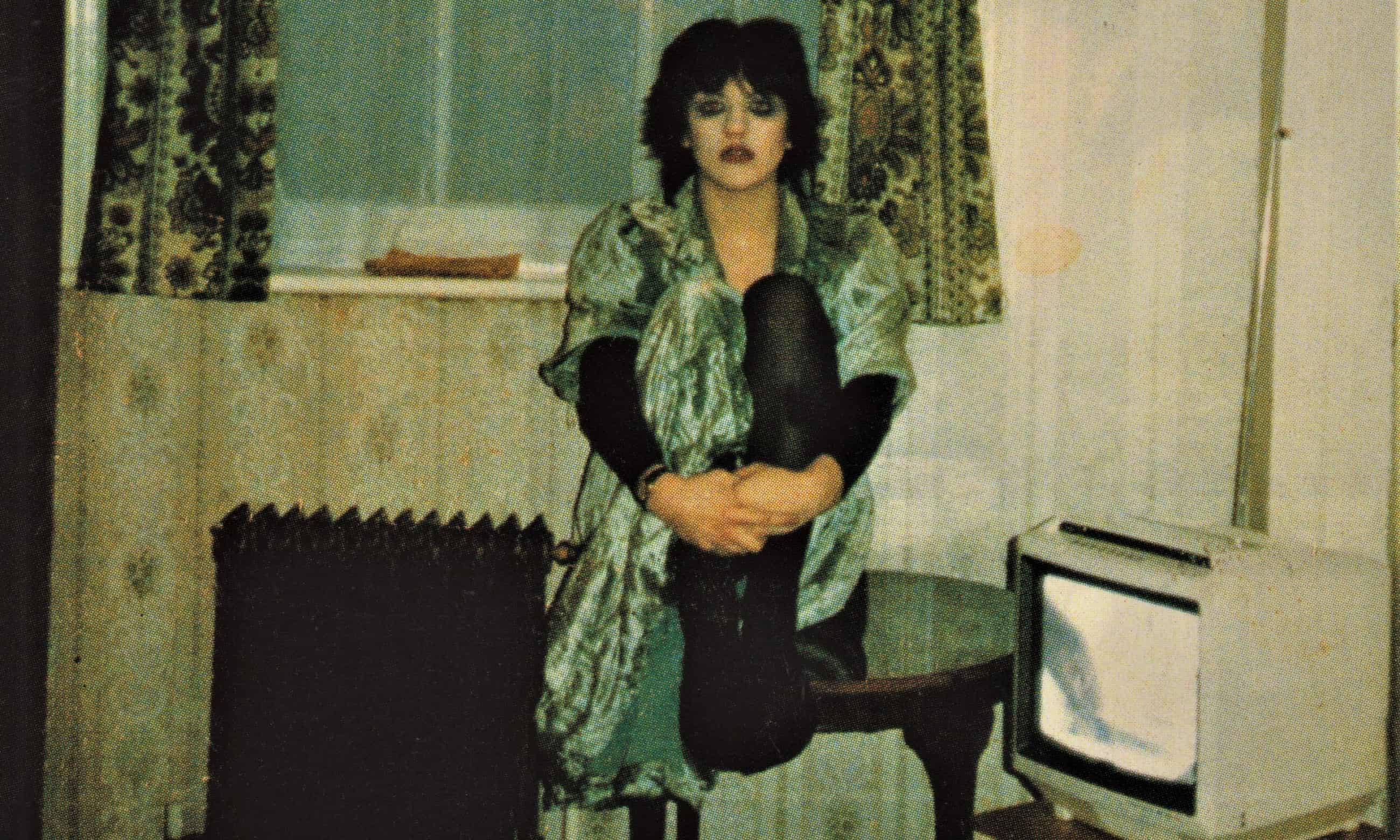
Courtney Love
Courtney Love in Liverpool: the Scousers who taught the grunge icon how to rock
In 1982, a tearaway called Courtney Love blazed into the city, intoxicated by its exploding post-punk scene. We reveal the feuds, filched raincoats and grotty flats that set her on the path to stardom
by Dave HaslamIf you were in Liverpool in 1982 and had a habit of wandering down Mathew Street, perhaps on your way to Probe record store, you are likely to have seen Courtney Love. She was 17 and living in the city, having been invited there by Teardrop Explodes frontman Julian Cope. Probe was one of her favourite places to go – if not to buy records, then to sit outside on the steps, drinking cider with her friend from back home in America, Robin Barbur.
A hundred yards from Probe was the site of Eric’s. From 1976 to 1980, Eric’s had hosted everyone from the Ramones to Joy Division. One band formed by the venue’s regulars was Big in Japan with lineups including Jayne Casey (later of Pink Military), Bill Drummond (later of the KLF), Holly Johnson (later of Frankie Goes to Hollywood) and Ian Broudie (later of the Lightning Seeds). “We were the most damaged children society turned out that year!” recalls Casey. “And we just happened to be on stage together.”
Love wanted to get close to them, particularly the Teardrop Explodes and Echo & the Bunnymen. She later recalled seeing Ian McCulloch of the Bunnymen “swanning around” the city: “He used to wear a big thick coat and glasses and hang out with Pete Wylie and mumble.” Wylie, of the band Wah! Heat, also had a big coat. Liverpool winters are cold – but the coats stayed on at parties and gigs. Love claims she once stole McCulloch’s, but he isn’t so sure: “I think she might have stolen a look rather than actual clothes. But if she did, good luck to her.”
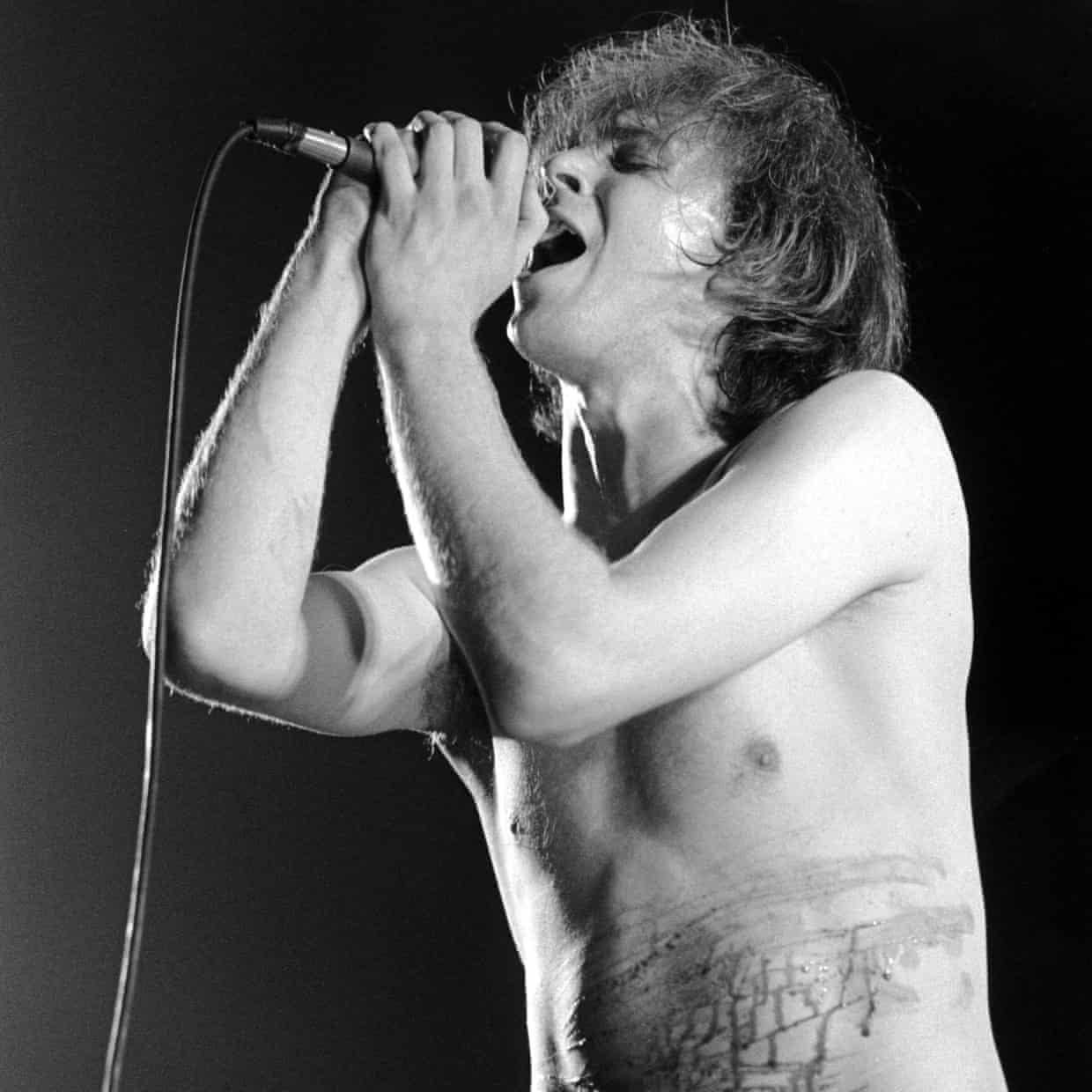
Drummond recalls Love as a “loud-mouthed American punkette”. She was loud, that’s something everyone agrees on. Pete Burns, later of the band Dead or Alive, had a clothes shop at the back of Probe. In his autobiography, Freak Unique, he described how it felt to be assailed by Love: “It’s like when a baby throws a rattle across the room and screams because it can’t communicate.”
Love’s parents, Linda Risi and Hank Harrison, met at a party for Dizzy Gillespie in San Francisco in 1963. “We were doing tons of acid,” Harrison recalled, “changing sex partners, and tripping out.” Apparently, he managed the Warlocks in 1965 before they became the Grateful Dead. Risi, then 19, came from a wealthy family. Love’s grandparents provided her with a trust fund of $500 a month. This paid for the trip to Liverpool.
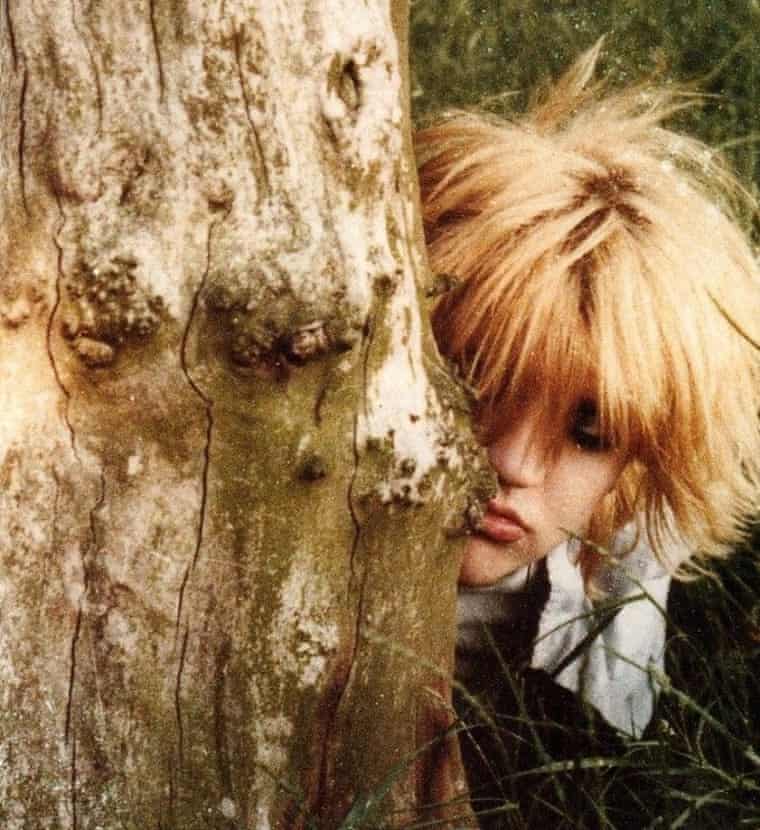
On 9 July 1964, Risi gave birth to Love Michelle Harrison – later known as Courtney. But Risi and Harrison fought and, after they divorced in 1970, a custody battle ensued. Risi and one of Harrison’s girlfriends testified that he had given his daughter LSD when she was four.
By the end of 1973, Risi had moved to New Zealand, leaving Love behind. She was just eight. She finally ended up in an institution for wayward teenagers, after being caught shoplifting. By the time she was 17, she had decided to leave behind her unhappy San Francisco childhood and, in 1981, set off for Ireland. She moved into a squat in Dublin and started hanging out at music venue McGonagles, where she collided with the post-punk Liverpool scene.
The Teardrop Explodes played Dublin in December. According to Bernie Connor, who was mates with Cope and sold T-shirts on the tour, Love passed the monitor engineer a note for Julian. “Are you married?” it said. “So Courtney comes back to the hotel,” continues Connor, “attaches herself, and gravitates a little closer to Julian with every passing minute.”
Cope gave Love and Barbur his Liverpool address and said they could stay, neglecting to mention he wouldn’t be there. They soon moved in to a “horrible” flat in Princes Avenue.Love recorded it all in her diary, from the “textured tawny-beige-green and brown-silver and white-old-human wallpaper” to “swirlfudgesludgepatterned earth tones carpet”.
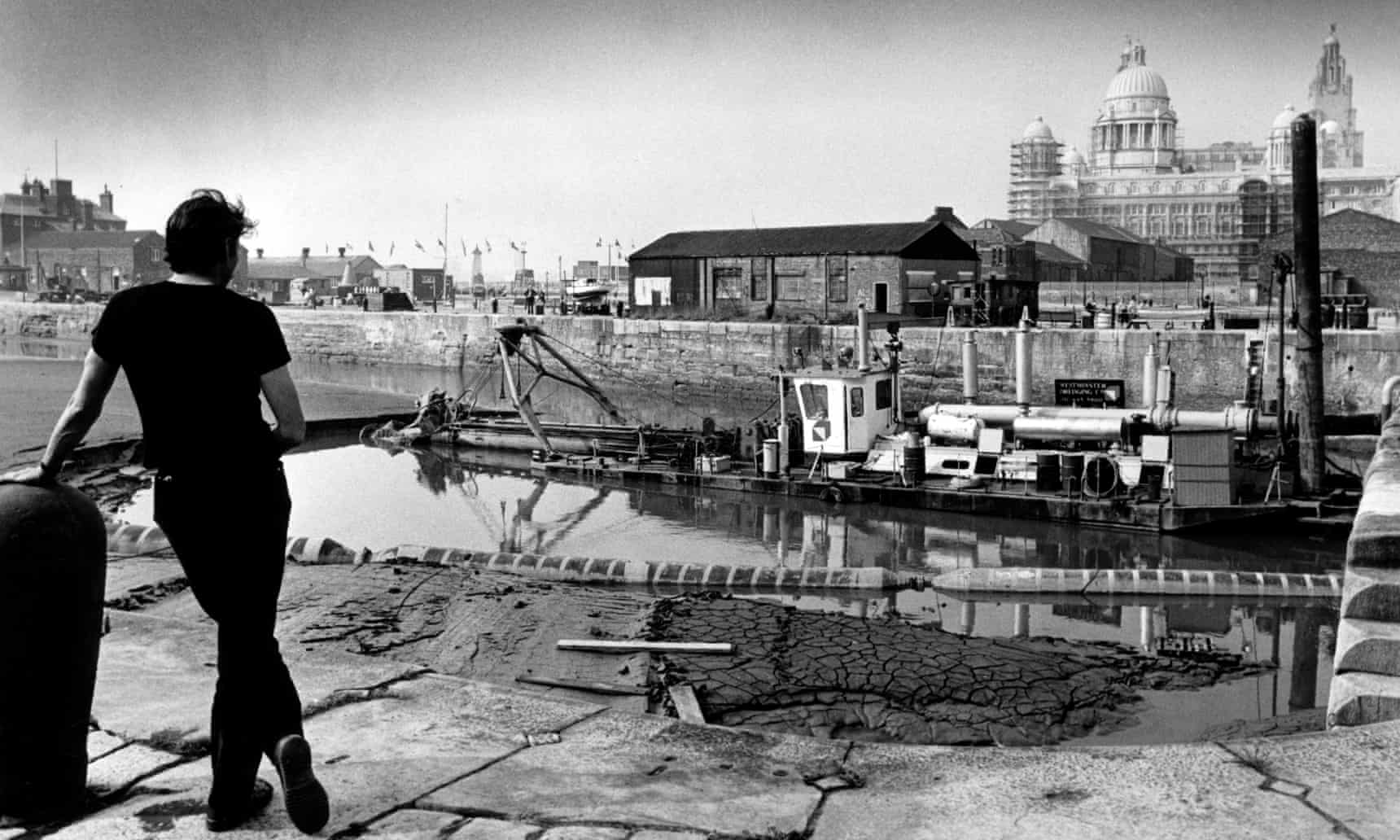
It possibly didn’t feel like it, as they sat in their coats in a cold, dimly lit flat on the edge of Toxteth, but Love and Barbur were in the right place at the right time. In April 1982, John Peel broadcast a Radio 1 show live from Liverpool. The week-long extravaganza fuelled and celebrated the scene that so thrilled the girls. It was a time of energy and ambition, with bitchiness galore.
While the sharp-tongued Burns was often at the centre of the acrimony, one feud – between Cope and McCulloch – has had a staggering shelf life. The pair haven’t had a good thing to say about each other in the four decades since. In Liverpool, making music and making enemies went hand in hand – a lesson that would stand Love in good stead.
David Balfe at Liverpool label Zoo was keen to launch a female version of Soft Cell, so he lent her a synth and a four-track recorder. She didn’t know how to use them, but his enthusiasm galvanised her. As for the compositions, it seems her sludge-coloured flat came in handy. “I went on about porridge,” she recalled, “because all we had was porridge.” While she describes the songs as “stupid”, they at least reflected her life in Liverpool. One of the first numbers was an ode to Cope, with a chorus beginning: “Julian, Julian, where have you been?”
Love once once said: “Before Liverpool, my life doesn’t count. Ian McCulloch and Julian Cope taught me a great deal. I owe them a lot. Liverpool had been a great school to become a rock star.”
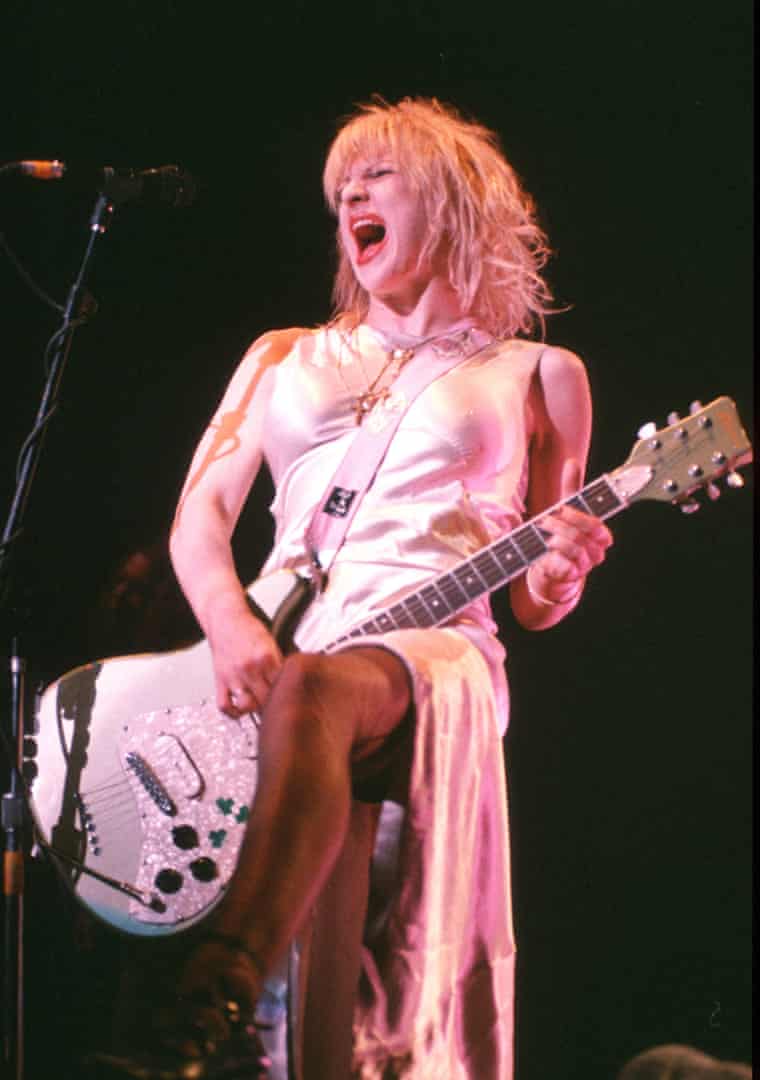
Understanding the mechanics of songwriting, and finding ways to channel influences and experiences, is important – but attitude counts too. “Julian told us to live your life as if you’re being followed by a movie camera,” Barbur later said. “I remember Courtney started walking very self-assuredly, head up, fast.”
A decade later, when Love was the frontwoman of Hole and married to Nirvana’s Kurt Cobain, Cope took out an advert in the NME that said of her: “Free us from Nancy Spungen-fixated heroin A-holes who cling to our greatest groups and suck out their brains.” What was it that had got under Cope’s skin? “She was always in your face,” says Connor. “I was able to detach myself, whereas she lasered in on him. I can understand it oppressing him.”
Barbur is less forgiving. “Julian was crazy. It was part of the charm. I don’t want to be a bitch, but maybe by this point she’d got a little famous and he’d got a little bit bitter. He hadn’t seen her since she was 17, 18. He probably saw this bratty, obnoxious girl was now a superstar pretty much, and thought, ‘Damn her.’ I don’t know. She really adored Julian.”
Love wrote to Cope and said that his ad had made her violently ill: “Imagine that it’s 1983, 82, 81 and 80, you’re a teenage piece of white trash and not even remotely decorative, but you love the great rock dream and it’s all you’ve got … And you buy a guitar and it burns like a coal in your hand and you feel some power and for once it isn’t the power of being made fun of or picked on, it’s […] the power to change the fucking world.”
I suggest to Connor that if Love had been a bloke with handfuls of drugs, bowling through life all mouthy and opinionated, then she’d have been treated like some hero from a Kerouac novel. “Undoubtedly. We were very young and so was she. And being in your face like that, that was new. We were quiet young fellas, it was a closed little network.”
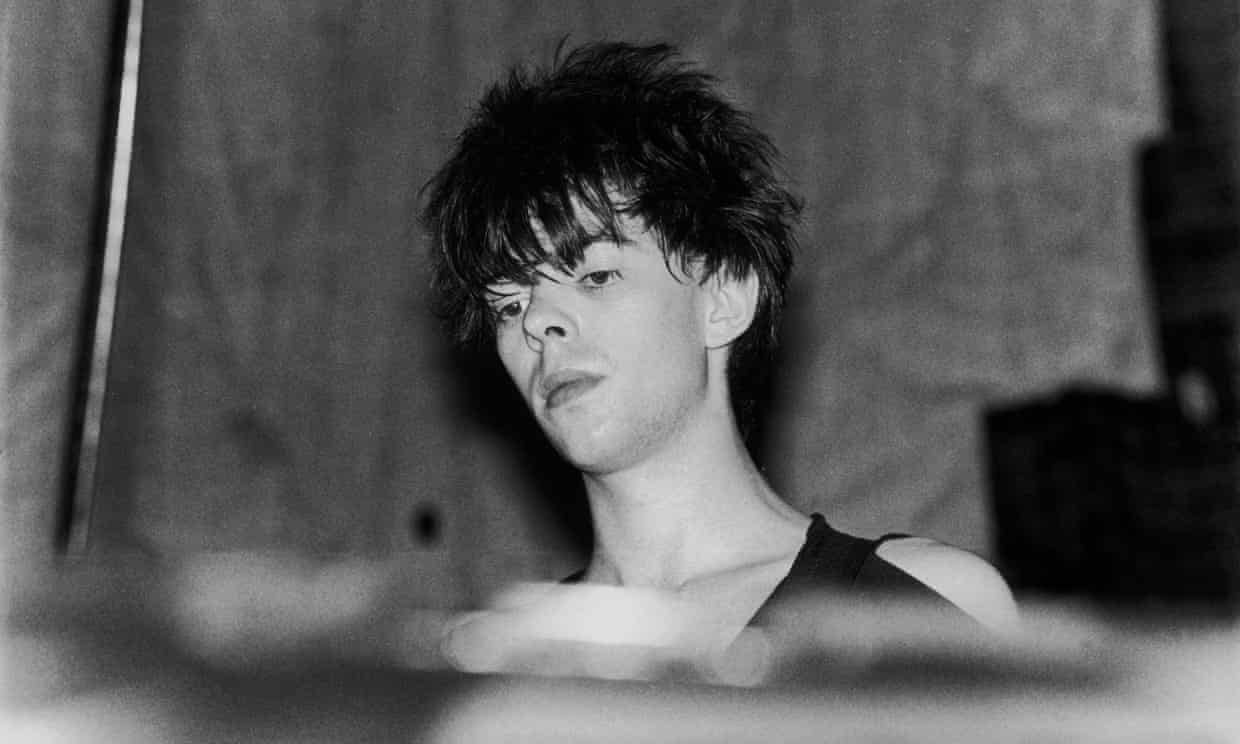
The best days of the Teardrops were over by then. In fact, they’d been over by July 1982, when Love had gone home. Mick Houghton, the band’s PR, remembers how Cope was at that time. “He knew he no longer belonged in Liverpool – and that, as a group, they no longer belonged anywhere.”
But the glory days of Echo & the Bunnymen – who Love called “the best British band ever” – were still to come. Other bands from the Eric’s scene became huge, too. Frankie Goes to Hollywood’s Relax became the first of three consecutive singles to hit No 1. Dead or Alive’s You Spin Me Round (Like a Record) also climbed to the top. Even Pete Wylie’s Wah! scaled the top five with The Story of the Blues. So the city Love left kept loudly knocking out hits, having shown a girl who had grown up with no one listening to her how to assert her identity, and what was possible.
On 21 July 1982, she caught the National Express bus to Heathrow, stopping off for egg and chips in the Midlands. At the airport, she wrote in her diary: “I can play music and understand technology. I can stay in and resist the temptation to make the first move, or stay too long or worse get intense. I can make tea now. I can remain enigmatic, pose well and appear feminine.” She thinks about all the people she met and concludes: “There’s one asset everyone has until they’ve spent it. Their mystique.”
Ahead lay fame, some terrible choices, loss and hurt. Rock’n’roll was her dream, Liverpool her inspiration, and fronting Hole gave her a voice – an honest, unignorable, insistent voice that broke the silence.
• Dave Haslam’s Searching for Love: Courtney Love in Liverpool is available from Confingo.